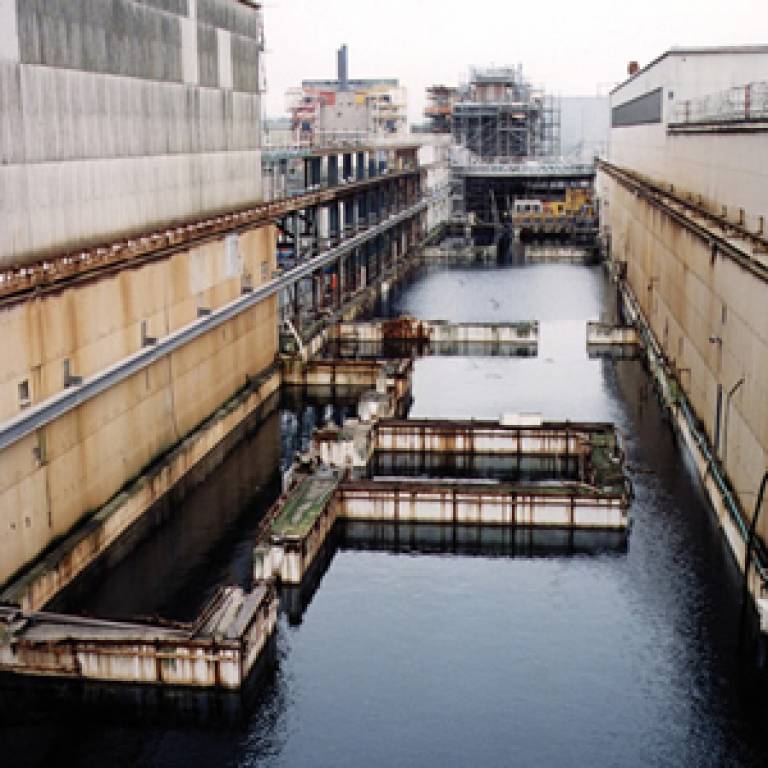From nuclear waste to DIAMOND
31 March 2008
Links:
 ucl.ac.uk/chemistry/staff/academic_pages/nik_kaltsoyannis" target="_self">Professor Nik Kaltsoyannis
ucl.ac.uk/chemistry/staff/academic_pages/nik_kaltsoyannis" target="_self">Professor Nik Kaltsoyannis
A multidisciplinary team from UCL will investigate how nuclear waste should be handled and disposed of safely as part of a £4m research project launched today.
DIAMOND - Decommissioning, Immobilisation And Management Of Nuclear wastes for Disposal - is funded by the Engineering & Physical Sciences Research Council and will be carried out by a consortium of six UK universities in partnership with industry over four years. The partners will define a programme of interim storage for nuclear waste while the government lays plans for its disposal in a mined repository in 2040.
The researchers, led at UCL by Professor Nik Kaltsoyannis (UCL Chemistry), will work in three broad areas: environment, migration and risk; decommissioning, the historic legacy and site termination; and materials design, development and performance.
"It is conservatively estimated that legacy waste treatment and disposal, decommissioning and site remediation, that is, reversing environmental damage at nuclear sites, from the last 60 years of the UK's civil nuclear programme will cost the UK taxpayer £70 billion," said Professor Kaltsoyannis. "The diversity of issues that must be addressed in tackling this problem is immense and requires a wide range of innovative solutions drawn from an equally wide range of technology discipline areas.
"To provide just one example, cleaning up contaminated land is a substantial component of nuclear site restoration. The range of radioactive contaminants present, and the potential for mixed contamination, represents a major challenge. Currently, most clean-up is expected to be through invasive technologies; we will explore more cost-effective in situ technologies such as barrier treatment systems."
Ten academics drawn from UCL Biology, Chemical Engineering, Chemistry, Earth Sciences and Physics will work on specific projects in each of the three programme areas, including microbial processes; developing a sensor for monitoring in-situ remediation of contaminated groundwater; and improved cement technology for stable and secure waste disposal.
In addition, the academics hope to address the developing skills gap in this field by recruiting PhD students to undertake certain areas of investigation for their doctoral research. The programme, which is led by the University of Leeds and involves Imperial College London, Loughborough University and the universities of Sheffield and Manchester, also aims to develop links between nuclear science experts across and within specialist centres in the UK.
To find out more, follow the links at the top of this article.
Image: The DIAMOND project will determine the next stage of storage of nuclear waste currently found in sites such as this
 Close
Close

